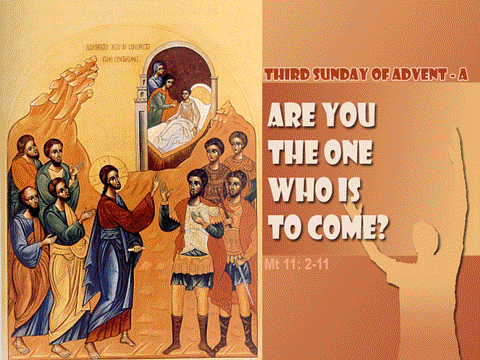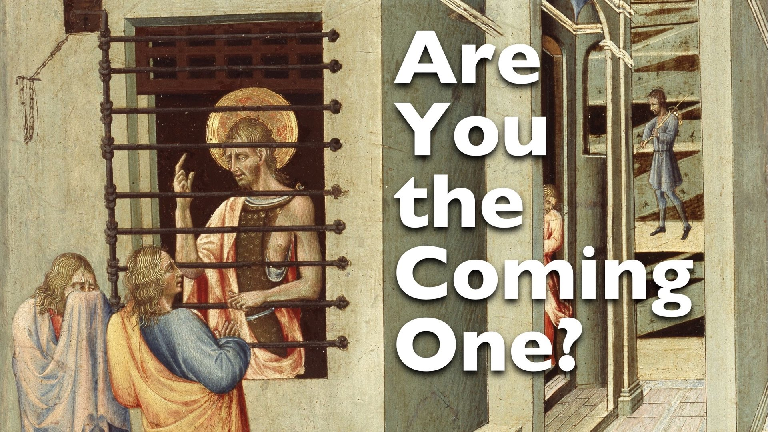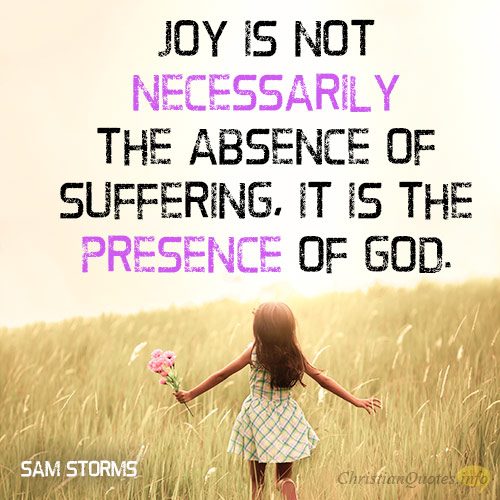3rd Sunday in Advent
Isaiah 35:1-6.10; Ps. 145:6-10; James 5:7-10; Gospel of Matthew 11:2-11

Preached by Msgr Philip Heng, SJ at Cathedral of Good Shepherd, Singapore on 15 December 2019
 In today’s Gospel that we just heard proclaimed, John the Baptist who was in prison, sent his disciples to ask Jesus, “Are you the one who is to come, or have we to wait for someone else?”
In today’s Gospel that we just heard proclaimed, John the Baptist who was in prison, sent his disciples to ask Jesus, “Are you the one who is to come, or have we to wait for someone else?”
Scripture scholars tell us that there are two possible reasons why John the Baptist sent his disciples to do this. First, John believed that Jesus was the Christ and so in sending his disciples to Jesus, they would encounter Him and see for themselves that Jesus was the Messiah, and so would become His followers.
As for the second reason, scripture scholars think that John the Baptist began to doubt that Jesus was the promised Messiah. First, perhaps, as Jesus proclaimed that He is to set prisoners free, John may wonder why Jesus has not set Him free, as the Prophet Isaiah (61:1) had predicted. More significantly, Jesus did not fulfil John’s expectations that the Messiah would baptise repentant sinners with the Holy Spirit and fire. Nor did Jesus fulfil the Jewish expectations that the Messiah would come as a warrior and a political conqueror, and in fire and brimstones.
 On the contrary, what did Jesus do? The Gospel tells us that He cured the sick: “the blind could see again, the lame walk, lepers are cleansed, and the deaf hear, and the dead are raised to life, and the Good News proclaimed to the poor. Moreover, in the Good News that Jesus proclaimed, He pronounced special blessings in the Beatitudes on the poor in spirit, the meek, the peacemakers (Mt 5:1-11), and that those who wish to be his disciples are to love their enemies (Mt 5:42-48); not to judge others (Mt 7:1-5). All these teachings did not fit the expectations of who the Messiah ought to be.
On the contrary, what did Jesus do? The Gospel tells us that He cured the sick: “the blind could see again, the lame walk, lepers are cleansed, and the deaf hear, and the dead are raised to life, and the Good News proclaimed to the poor. Moreover, in the Good News that Jesus proclaimed, He pronounced special blessings in the Beatitudes on the poor in spirit, the meek, the peacemakers (Mt 5:1-11), and that those who wish to be his disciples are to love their enemies (Mt 5:42-48); not to judge others (Mt 7:1-5). All these teachings did not fit the expectations of who the Messiah ought to be.
My brothers and sisters in Christ, if John the Baptist doubted that Jesus was the Messiah, as Jesus did not fulfil his expectations of what a Messiah ought to be, then let us not be surprised by such a reaction. This is because when we reflect on our expectations of who the Messiah is for us, we too like John the Baptist may also understandably begin to doubt that Jesus is our Messiah, especially for those of us who are experiencing different forms of “imprisonment” and suffering and sorrows in our lives.
What can we say to a mother, like Michelle, (not her real name), who says to you, “Father, my husband has gambled away all our lifetime savings, and is threatening to be violent towards me and our children when I don’t want to give him the rest of our savings? He is now borrowing money to feed his gambling addiction. We have a daughter and a son. Out of compassion, we adopted our son. He has always been a troubled and rebellious child from the age of three, and we never got to understand why. He is very intelligent and achieves straight As in his examination, but now refuses to go to school. To make matters worse, his girlfriend is now pregnant, and his father blames me for everything.
Like his father, he spends money like water, and when he is questioned, or when I threaten to remove his credit card away, he gets violent. He has also stopped going to church because he like his father is constantly angry with me and blames me for all the pain and confusion he has in his life. He has been in and out of IMH, and seeing a counsellor, but there is little improvement. Father, I have suffered enough and for too long . . . I cry every night . . . and God does not answer my prayers . . . what wrong have I done to deserve all these? Where is God? I wish to die because I can’t take all these any more. . .
 My sisters and brothers in Christ, there was very little I could say to Michelle to console her in her pain and suffering. Even as I asked Michelle not to give up hope and to continue to trust that Jesus is with her and will give her the strength she needs, my words sounded hollow because I am not the one suffering; she is the one suffering. Yet, there was nothing else I could say to Michelle, except to ask her to turn towards Jesus, who Himself suffered so much for our sake.
My sisters and brothers in Christ, there was very little I could say to Michelle to console her in her pain and suffering. Even as I asked Michelle not to give up hope and to continue to trust that Jesus is with her and will give her the strength she needs, my words sounded hollow because I am not the one suffering; she is the one suffering. Yet, there was nothing else I could say to Michelle, except to ask her to turn towards Jesus, who Himself suffered so much for our sake.
It is not impossible to imagine why Michelle would doubt that Jesus is the Messiah. For Michelle, Jesus seems to be reaching out to others, but not her in her suffering. And, that even as Jesus assures her that He would heal and liberate us from her pain, suffering and sorrows they are not easy, and would still understandably sound hollow, when the pain is agonising and prolonged.
There is a story of a young girl Jane, whose mother had asked her to take care of the chickens while she was away. One day, Jane noticed a little chick pecking and struggling to get out of her shell. Jane impulsively gently helped the chick by pulling open and peeling away the shell to free the chick.
As Jane was looking forward for the chick to emerge out of the egg shell, she was shocked to see the chick gasping for breath and struggling to get out, and then stopped breathing. Jane panicked and ran to her mother for help. When the mother came and saw what has happened, she knew what Jane had done. She smiled at her young daughter and explained to her that each chick must be left alone to free themselves. It is through their struggles that they are then able to become strong enough to live outside the shell.
Understanding Jane’s good intentions and lack of knowledge, the mother said to Jane, “My dear, there are some things in life that we can’t do for them and likewise, they for us. You have to let them help themselves, or we can only help ourselves.
As Jane, grew up and became a mother herself, she recalls, “Often, when I wish I could do certain things for my young children, it is better that I let them face the pain and challenges themselves so that they can then learn to grow in their maturity.” Being over protective of them does not always help them. In fact, this is often how God also relates to us, even though His Love and Mercy for us is total and unconditional. God too does not want to spoil us by being over protective . . . God loves us in such a manner that we will learn to mature in our faith and relationship with Him.
 My brothers and sisters in Christ, let us also note that today, we celebrate the Third Sunday of Advent; traditionally called Gaudete Sunday. Gaudete is the Latin word for rejoice. In the past when our observance of Advent was more akin to a Lenten discipline, this Sunday was a time to take a breather and celebrate the nearness of the Coming of Christ at Christmas.
My brothers and sisters in Christ, let us also note that today, we celebrate the Third Sunday of Advent; traditionally called Gaudete Sunday. Gaudete is the Latin word for rejoice. In the past when our observance of Advent was more akin to a Lenten discipline, this Sunday was a time to take a breather and celebrate the nearness of the Coming of Christ at Christmas.
However, this “joy” that we celebrate this week of Advent is less about seeing that Christmas is near at hand, and more importantly, this “joy” that we are celebrating is about renewing our sense of purpose in life, as God reveals His Good News of Salvation to the world. As such, this “joy” is a “Joy” that is rooted in unconditional love; a love that comes from God and is experienced in those around us. This means that such a Joy requires the confidence and trust that this love is real, reliable and never ending. The well-known spiritual writer, Henri Nouwen once wrote of joy as an internal orientation that is not dependent on external circumstances, whether they are good or bad. This “joy” is “the joy of my soul” that is rooted in our relationship with God.
 And so, as I conclude, let us remember that as Jesus in today’s Gospel, proclaims Himself to be a God of Mercy and Compassion; a God who cures the sick where “the blind could see again, the lame walk, lepers are cleansed, and the deaf hear, and the dead are raised to life, and the Good News proclaimed to the poor,” let us, receive the graces of joy of this Third Week of Advent wholeheartedly, so that we will have the wisdom to transcend and go beyond the trials, tribulations and sorrows of our lives, even if our present challenges are as painful and agonising as that of Michelle, in our story.
And so, as I conclude, let us remember that as Jesus in today’s Gospel, proclaims Himself to be a God of Mercy and Compassion; a God who cures the sick where “the blind could see again, the lame walk, lepers are cleansed, and the deaf hear, and the dead are raised to life, and the Good News proclaimed to the poor,” let us, receive the graces of joy of this Third Week of Advent wholeheartedly, so that we will have the wisdom to transcend and go beyond the trials, tribulations and sorrows of our lives, even if our present challenges are as painful and agonising as that of Michelle, in our story.
This is because Jesus assures us in today’s Gospel that His Compassionate and Merciful Love will never fail; and that in Him, as our Saviour who is to Come at Christmas, we will have the real hope that our true Joy is founded on.
Adapted from: Reflections for the III Sunday of Advent; Fr Antony Kadavil; The Word of God.
https://www.vaticannews.va/en/church/news/2019-12/sunday-reflection-vatican-news0.html
Adapted from: Sower’s Seeds Aplenty; fourth planting; Brian Cavanaugh,T.O.R.; Pub.: Paulist Press: 1947; p.55; nos. 72.
Adapted from: Catholic Health Association of the United States, 2017;
https://www.chausa.org/docs/default-source/prayers/advent/2017-advent-week-3-reflection.pdf?sfvrsn=2
Msgr Philip Heng, S.J.

Website-Counter from 16th December 2019
